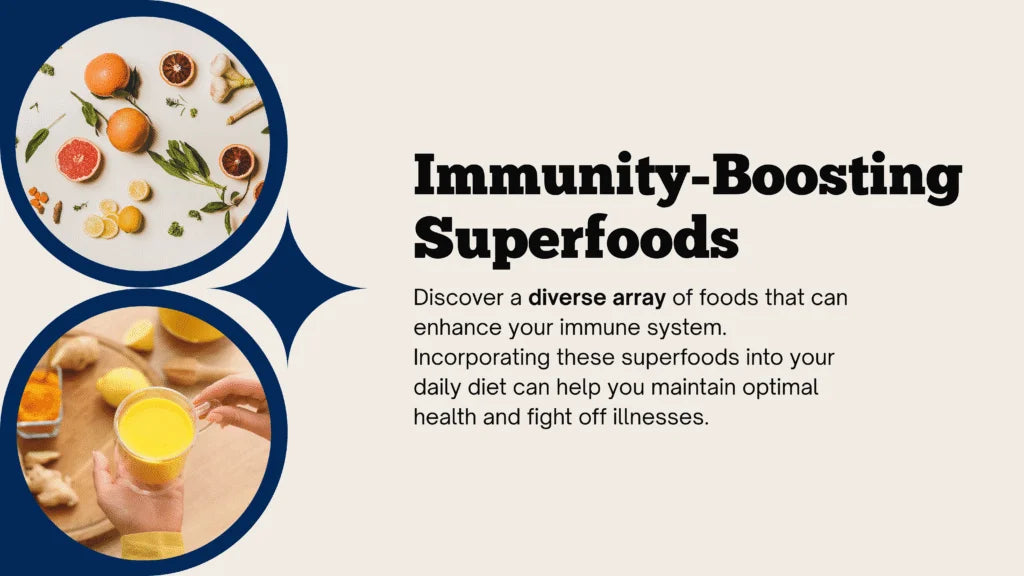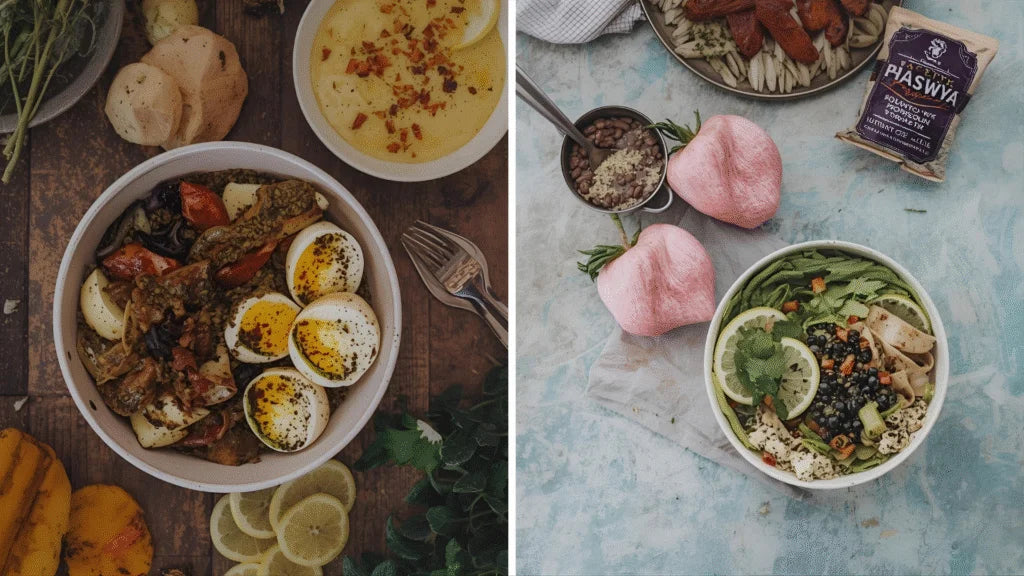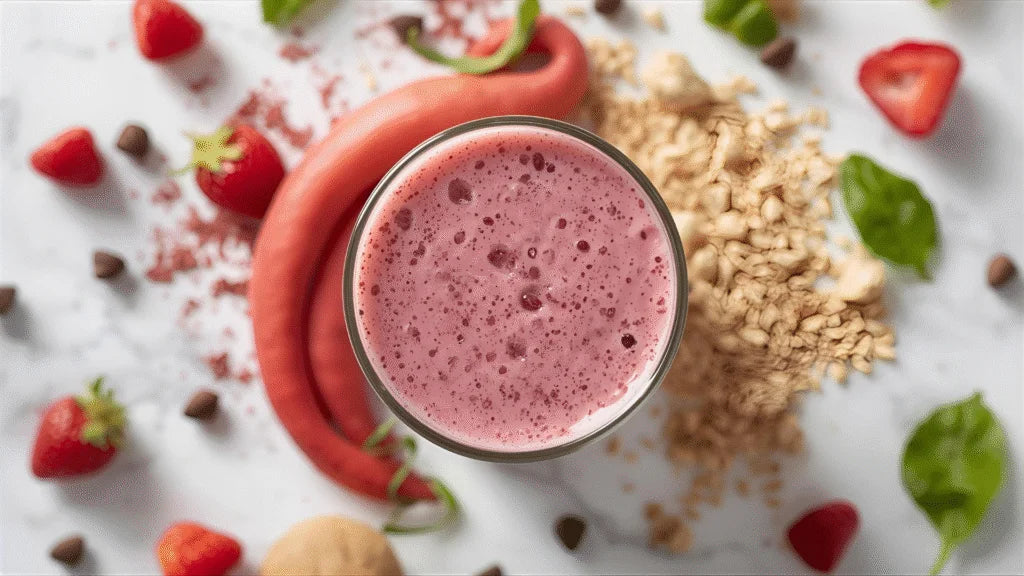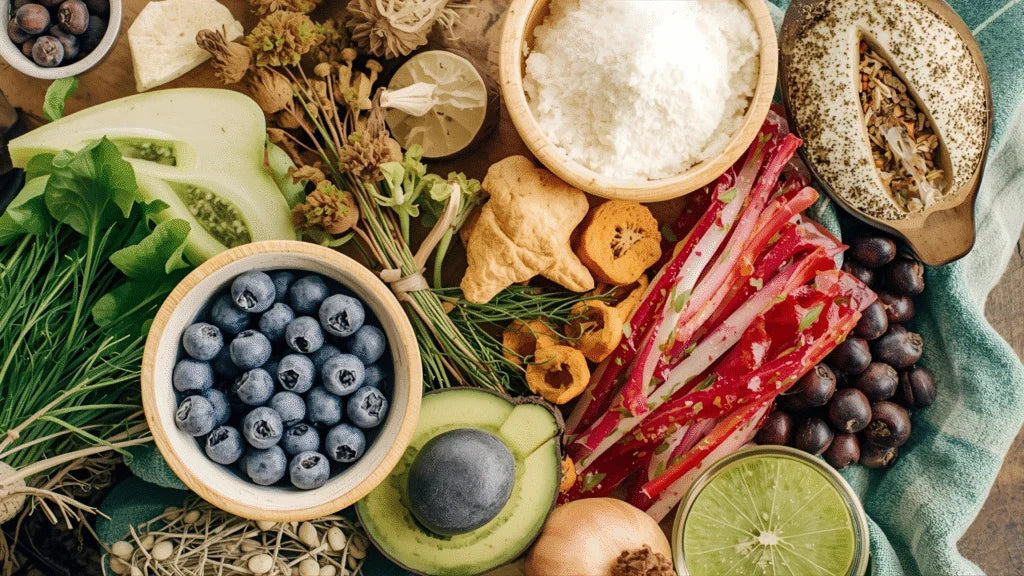Best Foods for Immunity: Boost Your Health Naturally , Let's be honest—staying healthy these days feels like a full-time job. Between flu season, work stress, and everything else life throws at us, our immune systems are working overtime. But here's the good news: you've got more control than you think. And it starts with what's on your plate.
Sure, getting enough sleep and washing your hands matter. But the food you eat? That's where the real magic happens. Your immune system is like a security team for your body, and the right nutrients are basically their training program and fuel source rolled into one.
What Makes a Food "Super" Anyway?

You've probably heard the term "superfood" thrown around everywhere—from health blogs to your local grocery store. Best Foods for Immunity It's not some official scientific category, though. It's really just a catchy way to describe foods that pack a serious nutritional punch. Think of them as overachievers in the food world.
These foods come loaded with vitamins, minerals, antioxidants, and healthy fats—all the good stuff your body craves without the empty calories. They help protect your cells from damage, calm down inflammation (which is basically your body's alarm system going off too often), and keep everything running smoothly.
And the best part? You don't need to hunt down rare berries from the Amazon or spend a fortune on exotic powders. We're talking about everyday foods you can find at any supermarket Best Foods for Immunity: Click

- Berries like blueberries, strawberries, and blackberries
- Leafy greens—spinach, kale, arugula
- Nuts and seeds (almonds, chia seeds, flaxseeds are all great)
- Fatty fish such as salmon, mackerel, and sardines
- Cruciferous veggies like broccoli, cauliflower, and Brussels sprouts
- Legumes—lentils, chickpeas, black beans
How These Foods Actually Strengthen Your Immune System
- Your immune system is constantly on patrol, looking for threats like viruses and bacteria. But it needs the right tools to do its job well. That's where these foods come in.
- Take vitamin C, for example. It helps your body crank out more white blood cells—the frontline soldiers of your immune system. You'll find it in citrus fruits, bell peppers, and even strawberries.
- Then there's vitamin D, which basically acts like a coordinator for your immune response. Fatty fish, eggs, and fortified milk are all good sources. (And honestly, most of us could use more vitamin D anyway.)
- Zinc is another heavy hitter. It activates T-cells, which are like the special forces of your immune system—they hunt down and destroy infected cells. Pumpkin seeds, lentils, and chickpeas have plenty of it.
- And we can't forget about probiotics—those friendly bacteria in yogurt and fermented foods. About 70% of your immune system lives in your gut, so keeping those bacteria happy is crucial. They basically train your immune cells to respond properly to threats.
- Meanwhile, antioxidants from berries, green tea, and even dark chocolate help neutralize free radicals (unstable molecules that cause cellular damage) and reduce inflammation throughout your body.
The Heavy Hitters: Foods That Really Make a Difference

- Citrus fruits are probably what you reach for when you feel a cold coming on, right? There's a reason for that. The vitamin C doesn't just help produce white blood cells—it also protects them from damage so they can keep fighting the good fight.
- Garlic might give you bad breath, but it's worth it. It contains something called allicin, which has powerful antiviral and antimicrobial properties. Plus, it ramps up white blood cell activity.
- Ginger has been used medicinally for centuries, and modern science backs it up. It's both anti-inflammatory and packed with antioxidants, making it especially helpful for respiratory infections.
- Spinach is like nature's multivitamin. It's loaded with vitamins A, C, and E, plus folate and tons of antioxidants. Just don't overcook it—light cooking actually helps release some nutrients while preserving others.
- Yogurt (look for ones with "live and active cultures" on the label) feeds the good bacteria in your gut. A healthy gut means a stronger immune system. It's really that simple.
- Turmeric gets its bright yellow color from curcumin, a compound that reduces inflammation and helps your body fight off infections more effectively. Pro tip: add a pinch of black pepper when you use turmeric—it dramatically increases absorption.
- Berries are like tiny antioxidant bombs. They're rich in flavonoids and anthocyanins, which help neutralize those pesky free radicals and keep inflammation in check.
Making It Work in Real Life
- Look, I get it. You're busy. You're not going to completely overhaul your diet overnight, and you shouldn't have to. The trick is finding easy ways to sneak these foods into meals you're already making.
- For breakfast, try blending up a quick smoothie with spinach (you won't even taste it), blueberries, a banana, some chia seeds, and almond milk. Or make overnight oats the night before—just combine oats, yogurt, chia seeds, and berries in a jar. Breakfast sorted.
- At lunch, a spinach and citrus salad is refreshing and takes five minutes. Toss some spinach and arugula with orange segments, sunflower seeds, and a simple olive oil and lemon dressing. Or stir-fry whatever vegetables you have with garlic and ginger, then serve it over rice or noodles.
- Snacking doesn't have to mean chips or cookies. Greek yogurt with some almonds and a drizzle of honey is satisfying and nutritious. Or make a turmeric latte (sometimes called "golden milk")—it's soothing and the curcumin gives your immune system a boost.
- Dinner can be as simple as baked salmon with garlic and lemon. You're getting omega-3s, vitamin D, and immune support all in one dish. Or make a big pot of vegetable soup with turmeric and ginger—it'll last you all week and it's incredibly anti-inflammatory.
Your Gut Is Running the Show
- Here's something that might surprise you: about 70% of your immune system is actually in your digestive tract. Your gut isn't just processing food—it's training your immune cells and deciding how your body responds to threats.
- That's why gut health is so critical. You need both probiotics (the good bacteria themselves) and prebiotics (the food that feeds them). Probiotics come from fermented foods like yogurt, kefir, kimchi, sauerkraut, and kombucha. Prebiotics are in garlic, onions, bananas, asparagus, and oats.
- Fiber from lentils, beans, and whole grains also supports your gut microbiome and keeps everything moving along as it should. A healthy gut creates this positive feedback loop—the good bacteria strengthen your immunity, and a balanced immune system helps your gut stay healthy. Win-win.
What About Supplements?
Real food should always be your first choice. Period. Whole foods come with fiber, water, and a complex mix of nutrients that work together in ways we're still discovering. That said, supplements can help fill gaps when you need them—things like spirulina, wheatgrass, or immunity blends Best Foods for Immunity .
Just don't go supplement-crazy without talking to your doctor first, especially if you're on any medications. Some supplements can interact with prescriptions in ways you might not expect.
The Other Stuff That Matters
No amount of superfoods will save you if the rest of your lifestyle is a mess. Sorry, but it's true.
- Sleep is non-negotiable. Your immune cells repair and recharge while you sleep. Aim for 7-9 hours. I know, easier said than done, but it really does matter.
- Exercise doesn't have to mean training for a marathon. Even a 30-minute walk improves circulation and helps your immune system function better.
- Stress management is huge because chronic stress floods your body with cortisol, which basically tells your immune system to stand down. Not good. Find what works for you—meditation, Best Foods for Immunity yoga, a hobby you love, or talking to a therapist.
- And hydration? Your body needs water for literally everything, including immune function. Keep a water bottle handy and actually use it.
The Long Game
When you consistently eat foods that support your immune system, you're not just avoiding the next cold (though that's nice too). You're setting yourself up for:
- Fewer illnesses overall and faster recovery when you do get sick
- Less chronic inflammation, which lowers your risk for heart disease, diabetes, and other conditions
- Better gut health, which weirdly enough also means better mental health
- Steady energy throughout the day without those awful sugar crashes
- Healthier aging—your brain, heart, and even your skin will thank you
A Little Extra Help: Managing Stress Naturally
Since we're talking about immunity, it's worth mentioning that stress is one of the biggest immune suppressors out there. That's where something like Livisca comes in. It's a blend of adaptogenic herbs—ashwagandha, chamomile, valerian root, and lavender—that help your body handle stress more effectively and improve sleep quality.
When you combine natural stress support with all these immune-boosting foods, you're covering your bases from multiple angles. It's a more holistic approach to health.

Just Start Somewhere
You don't need to do everything at once. Pick one thing this week. Add berries to your breakfast. Make that garlic-ginger stir-fry. Buy some yogurt and actually eat it. Each small step counts .
Your body is remarkably resilient and wants to heal itself—it just needs the right fuel. Give it what it needs, be patient with yourself, and trust the process. You've got this.
Taking Your Health to the Next Level
| Product Name | Benefit / Why It’s Useful | Amazon Link | Website Link |
| Livisca Detox & Liver Health Tea | Supports liver detox, helps cleanse body naturally | Buy on Amazon | Visit on Livisca |
| Livisca Women’s UTI-Care Herbal Tea | Supports urinary tract health in women naturally | Buy on Amazon | Visit on Livisca |
| Livisca Anti-Inflammatory & Joint Pain Relief Tea | Combats inflammation, supports joint comfort | Buy on Amazon | Visit on Livisca |
| Livisca Headache & Migraine Relief Tea | Helps ease headache & migraine symptoms naturally | Buy on Amazon | Visit on Livisca |
Building a strong immune system isn't just about what you eat—it's about creating sustainable habits that support your overall wellbeing. Quality nutrition, adequate sleep, stress management, and regular movement all work together.
If you're looking for additional support in your health journey, Livisca offers carefully curated wellness products designed to complement your healthy lifestyle. From immune-supporting supplements to nutritional guides, Livisca provides science-backed solutions that fit seamlessly into your daily routine. Visit https://www.livisca.com/ to explore how their products can help you achieve your wellness goals.
Remember, your immune system is remarkably resilient when given proper care. Small, consistent choices add up to significant benefits over time. Start with one or two changes from this guide, build them into habits, and gradually expand from there. Your body will thank you for the investment.









